Filter News
Area of Research
News Type
News Topics
- (-) Machine Learning (12)
- (-) Quantum Computing (6)
- 3-D Printing/Advanced Manufacturing (48)
- Advanced Reactors (18)
- Artificial Intelligence (21)
- Big Data (18)
- Bioenergy (20)
- Biology (24)
- Biomedical (15)
- Biotechnology (3)
- Buildings (23)
- Chemical Sciences (20)
- Clean Water (13)
- Climate Change (26)
- Composites (13)
- Computer Science (55)
- Coronavirus (15)
- Critical Materials (12)
- Cybersecurity (9)
- Decarbonization (10)
- Energy Storage (46)
- Environment (57)
- Exascale Computing (4)
- Frontier (4)
- Fusion (17)
- Grid (23)
- High-Performance Computing (23)
- Hydropower (6)
- Irradiation (3)
- Isotopes (12)
- ITER (4)
- Materials (67)
- Materials Science (51)
- Mathematics (1)
- Mercury (3)
- Microscopy (20)
- Molten Salt (6)
- Nanotechnology (24)
- National Security (10)
- Net Zero (1)
- Neutron Science (41)
- Nuclear Energy (34)
- Partnerships (6)
- Physics (10)
- Polymers (13)
- Quantum Science (14)
- Security (4)
- Simulation (11)
- Software (1)
- Space Exploration (11)
- Statistics (1)
- Summit (8)
- Sustainable Energy (50)
- Transformational Challenge Reactor (1)
- Transportation (44)
Media Contacts

Joseph Chapman, a research scientist in quantum communications at ORNL, was given the Physical Review Applied Reviewer Excellence 2024 award for his work as a peer reviewer for the journal Physical Review Applied.
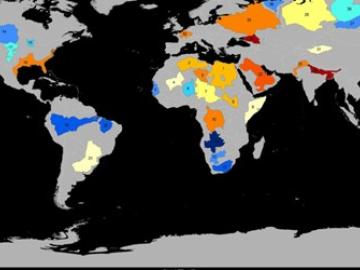
Groundwater withdrawals are expected to peak in about one-third of the world’s basins by 2050, potentially triggering significant trade and agriculture shifts, a new analysis finds.
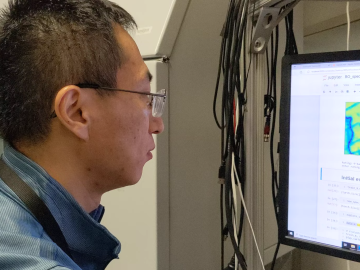
To capitalize on AI and researcher strengths, scientists developed a human-AI collaboration recommender system for improved experimentation performance.
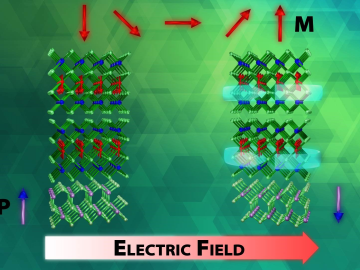
An advance in a topological insulator material — whose interior behaves like an electrical insulator but whose surface behaves like a conductor — could revolutionize the fields of next-generation electronics and quantum computing, according to scientists at ORNL.

A study led by Oak Ridge National Laboratory researchers identifies a new potential application in quantum computing that could be part of the next computational revolution.
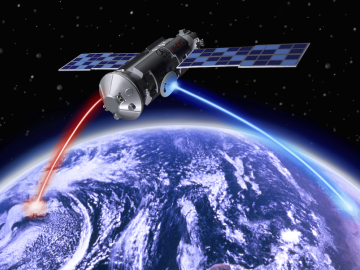
A study by Oak Ridge National Laboratory researchers has demonstrated how satellites could enable more efficient, secure quantum networks.
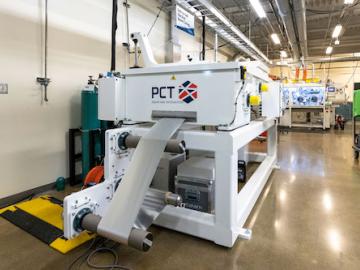
Researchers at the Department of Energy’s Oak Ridge National Laboratory and their technologies have received seven 2022 R&D 100 Awards, plus special recognition for a battery-related green technology product.
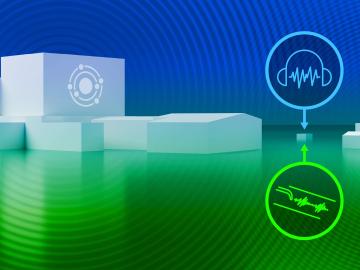
An Oak Ridge National Laboratory team developed a novel technique using sensors to monitor seismic and acoustic activity and machine learning to differentiate operational activities at facilities from “noise” in the recorded data.
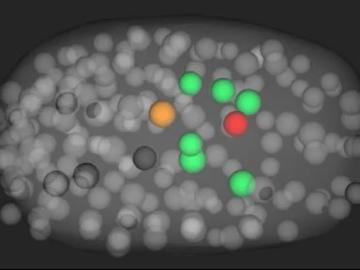
Scientists have developed a novel approach to computationally infer previously undetected behaviors within complex biological environments by analyzing live, time-lapsed images that show the positioning of embryonic cells in C. elegans, or roundworms. Their published methods could be used to reveal hidden biological activity.

A world-leading researcher in solid electrolytes and sophisticated electron microscopy methods received Oak Ridge National Laboratory’s top science honor today for her work in developing new materials for batteries. The announcement was made during a livestreamed Director’s Awards event hosted by ORNL Director Thomas Zacharia.




